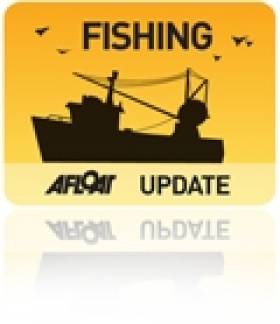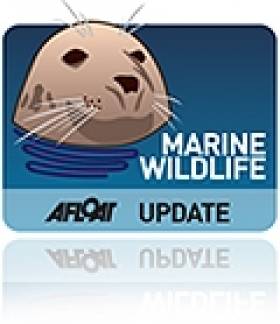Cork Harbour Information
It’s one of the largest natural harbours in the world – and those living near Cork Harbour insist that it’s also one of the most interesting.
This was the last port of call for the most famous liner in history, the Titanic, but it has been transformed into a centre for the chemical and pharmaceutical industry.
The harbour has been a working port and a strategic defensive hub for centuries, and it has been one of Ireland's major employment hubs since the early 1900s. Traditional heavy industries have waned since the late 20th century, with the likes of the closure of Irish Steel in Haulbowline and shipbuilding at Verolme. It still has major and strategic significance in energy generation, shipping and refining.
Giraffe wander along its shores, from which tens of thousands of men and women left Ireland, most of them never to return. The harbour is home to the oldest yacht club in the world, and to the Irish Navy.
This deep waterway has also become a vital cog in the Irish economy.
‘Afloat.ie's Cork Harbour page’ is not a history page, nor is it a news focus. It’s simply an exploration of this famous waterway, its colour and its characters.
Cork Harbour Festival
Ocean to City – An Rás Mór and Cork Harbour Open Day formerly existed as two popular one-day events located at different points on Cork’s annual maritime calendar. Both event committees recognised the synergy between the two events and began to work together and share resources. In 2015, Cork Harbour Festival was launched. The festival was shaped on the open day principle, with Ocean to City – An Ras Mór as the flagship event.
Now in its sixth year, the festival has grown from strength to strength. Although the physical 2020 festival was cancelled due to Covid-19, the event normally features nine festival days starting on the first week of June. It is packed full of events; all made possible through collaboration with over 50 different event partners in Cork City, as well as 15 towns and villages along Cork Harbour. The programme grows year by year and highlights Ireland’s rich maritime heritage and culture as well as water and shore-based activities, with Ocean to City – An Rás Mór at the heart of the festival.
Taking place at the centre of Ireland’s maritime paradise, and at the gateway to Ireland’s Ancient East and the Wild Atlantic Way, Cork is perfectly positioned to deliver the largest and most engaging harbour festival in Ireland.
The Cork Harbour Festival Committee includes representatives from Cork City Council, Cork County Council, Port of Cork, UCC MaREI, RCYC, Cobh & Harbour Chamber and Meitheal Mara.
Marinas in Cork Harbour
There are six marinas in Cork Harbour. Three in Crosshaven, one in East Ferry, one in Monkstown Bay and a new facility is opening in 2020 at Cobh. Details below
Port of Cork City Marina
Location – Cork City
Contact – Harbour Masters Dept., Port of Cork Tel: +353 (0)21 4273125 or +353 (0)21 4530466 (out of office hours)
Royal Cork Yacht Club Marina
Location: Crosshaven, Co. Cork
Contact: +353 (0) 21 4831023
Crosshaven Boatyard Marina
Location: Crosshaven, Co. Cork
Contact: +353 (0)21 4831161
Salve Marina Ltd
Location: Crosshaven, Co. Cork
Contact: +353 (0) 21 4831145
Cork Harbour Marina
Location: Monkstown, Co. Cork
Contact: +353 (0)87 3669009
East Ferry Marina
Location: East Ferry, Co. Cork
Contact: +353 (0)21 4813390
New Cove Sailing Club Marina
(to be opened in 2020)
Location: Cobh, Co. Cork
Contact: 087 1178363
Cork Harbour pontoons, slipways and ramps
Cork City Boardwalk Existing pontoon
Port of Cork 100m. pontoon
Cork city – End of Cornmarket St. steps and slip;
Cork city - Proby’s Qy. Existing limited access slip
Quays Bar & Restaurant, Private pontoon and ramp for patrons, suitable for yachts, small craft town and amenities
Cobh harbour [camber] Slip and steps inside quay wall pontoon
Fota (zoo, house, gardens) Derelict pontoon and steps
Haulbowline naval basin; restricted space Naval base; restricted access;
Spike Island pier, steps; slip, pontoon and ramp
Monkstown wooden pier and steps;
Crosshaven town pier, with pontoon & steps
East Ferry Marlogue marina, Slip (Great Island side) visitors’ berths
East Ferry Existing pier and slip; restricted space East Ferry Inn (pub)
(Mainland side)
Blackrock pier and slips
Ballinacurra Quay walls (private)
Aghada pier and slip, pontoon & steps public transport links
Whitegate Slip
Passage West Pontoon
Glenbrook Cross-river ferry
Ringaskiddy Parking with slip and pontoon Ferry terminal; village 1km.
Carrigaloe pier and slip; restricted space; Cross-river ferry;
Fountainstown Slip
White’s Bay beach
Ringabella beach
Glanmire Bridge and tide restrictions
Old Glanmire - Quay






























































